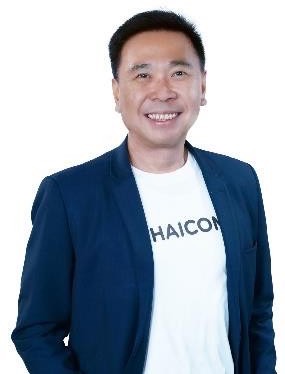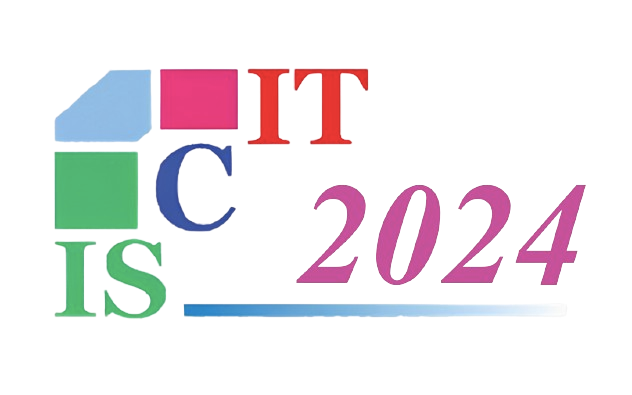Keynote Speakers
Table of Contents

Mr. Ekachai Phakdurong
Chief Strategy Officer (CSO)
Thaicom Public Company Limited
Ekachai is an international and telecommunications business and regulatory affairs professional with a strong technical background. He is currently a Chief Strategy Officer (CSO) of Thaicom Public Company Limited, an internationally recognized Thai satellite operator, overseeing the company's corporate strategy, business development, and corporate communications.
His experience covers a wide range of aspects of an organization. His roles over his more than 20 years at Thaicom included managing business units, overlooking Thaicom’s subsidiaries, regulatory & government affairs, business development, engineering, operations, customer service, and corporate communications.
Ekachai holds a Master of Science in Electrical Engineering (Awarded: International Student Academic Achievement) from the University of Southern California in Los Angeles and a Bachelor of Engineering with First Class Honors in Electrical Engineering from Chulalongkorn University in Bangkok.
Title: Space is the Next Big Thing: How Will the Space Shaping our Future?
Tuesday, 24 September 2024, 1.15 – 1.45 PM
Abstract
The space tech is set to play a pivotal role in global development over the next decade. The space economy is expected to reach $1.8 trillion by 2035, thanks to advances in satellite and space technologies as well as other space-enabled services. As a key driver, space technology will have a significant impact on the industry, driving advancements and shaping how space is utilized.
This keynote session will focus on how space technology will revolutionize our life by improving global communication and connectivity, driving major economic growth, and tackling global concerns such as climate change and resource management. Addressed by Ekachai Phakdurong, CSO of Thaicom, a leading Asian satellite operator with over 30 years of experience in providing end-to-end satellite communications, the session will provide insights on how the industry is pursuing opportunities in the new space economy and leverages space-based data to empower people with innovative space technology to improve people’s lives.

Diep N. Nguyen
University of Technology Sydney, Australia
Diep N. Nguyen (Senior Member, IEEE) received the M.E. degree in electrical and computer engineering from the University of California at San Diego (UCSD), La Jolla, CA, USA, in 2008, and the Ph.D. degree in electrical and computer engineering from The University of Arizona (UA), Tucson, AZ, USA, in 2013. He is currently the Head of 5G/6G Wireless Communications and Networking Lab, Director of Agile Communications and Computing group, Faculty of Engineering and Information Technology, University of Technology Sydney (UTS), Sydney, NSW, Australia. Before joining UTS, he was a DECRA Research Fellow with Macquarie University, Macquarie Park, NSW, Australia, and a Member of the Technical Staff with Broadcom Corporation, CA, USA, and ARCON Corporation, Boston, MA, USA, and consulting the Federal Administration of Aviation, Washington, DC, USA, on turning detection of UAVs and aircraft, and the U.S. Air Force Research Laboratory, USA, on anti-jamming. His research interests include computer networking, wireless communications, and machine learning application, with emphasis on systems’ performance and security/privacy. Dr. Nguyen received several awards from LG Electronics, UCSD, UA, the U.S. National Science Foundation, and the Australian Research Council. He has served on the Editorial Boards of the IEEE Transactions on Mobile Computing, IEEE Communications Surveys & Tutorials (COMST), IEEE Open Journal of the Communications Society.
Title: Enabling Generative AI as a Service with Democratized Cyberinfrastructure
Abstract
As a transformative force, Generative AI (GenAI) can add nearly $7 trillion annually to the global economy). Governments (e.g., US, China, UK), industry giants like Google, Microsoft, Amazon, OpenAI are racing to invest and develop their own computing and networking infrastructure to train their GenAI models with potentially trillions of parameters. This foretells a future where GenAI holds immense potential for numerous domains, serving as a powerful catalyst for innovation. However, the deployment GenAI as a Service face various challenges, including the exponential demand on networking/communications resources to train GenAI models with billions or trillions of tokens/parameters, minimizing the training/response latency (e.g., to meet industry automation requirements), adapting the model size to fit specific applications/services/devices (e.g., for mobile devices), and addressing the privacy/security concerns as well as the associated costs (OPEX, CAPEX). This talk will first discuss emerging GenAI applications and our vision of GenAI as a Service. We then explore our novel networking architectures that enable the democratization of the GenAI model training process, privacy-preserving methods to train GenAI models, model quantization, and secure data/resource sharing frameworks that incentive users/providers to contribute data, resources for the model training and tuning. The talk concludes with open issues and future research directions.
